- Home
- international
- news
- 'Harried and tired and worn and rushed': Photos show Martin Luther King Jr.'s final hours
'Harried and tired and worn and rushed': Photos show Martin Luther King Jr.'s final hours
Esme Mazzeo

- Martin Luther King, Jr. arrived in Memphis on April 3, 1968, with plans to support a sanitation workers' strike.
- It was storming on that night when he gave his final speech at Mason Temple.
Martin Luther King Jr. arrived in Memphis, Tennessee on April 3 to support a local sanitation workers' strike.
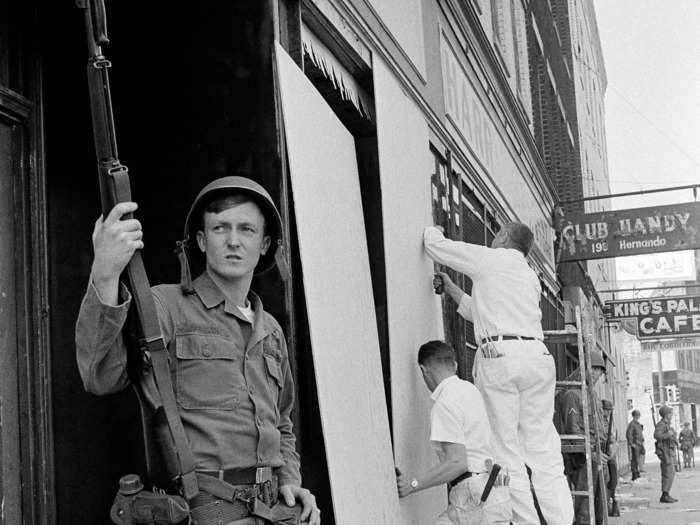
According to Memphis magazine, King was deliberate about staying at the Black-owned Lorraine Motel because he had received criticism from Memphis journalists for seeking safety at the Holiday Inn Rivermont amid riots during a March 28 demonstration for the same cause.
King was not scheduled to speak on the night of April 3 at Mason Temple in Memphis, but did so because of public demand.
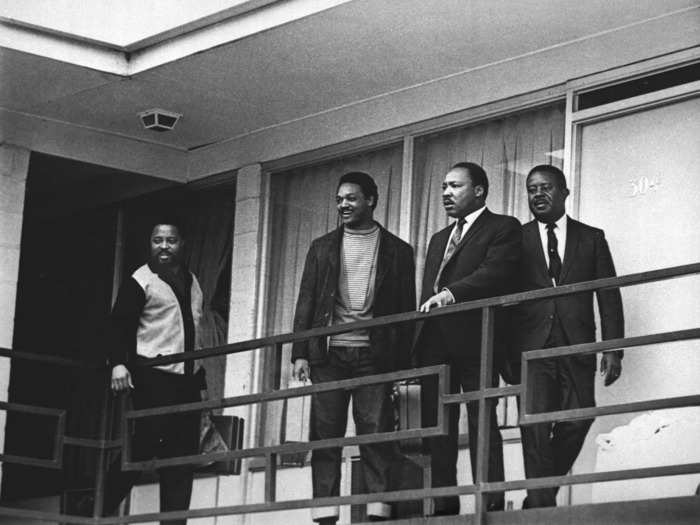
King had a sore throat on April 3 and had planned to stay at his hotel and let Baptist minister Ralph Abernathy speak to the crowd of thousands of sanitation workers who had gathered in support of King, according to Memphis magazine.
But the minister called up King and asked him to speak. "I had sense enough to know that this was not my crowd," Abernathy later said of his decision.
King looked "harried and tired and worn and rushed" during his speech, but spoke with "passion."
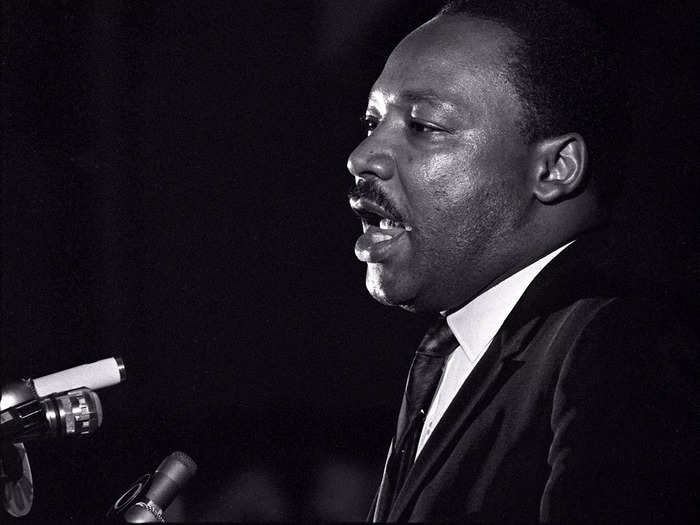
According to reports, it was storming in Memphis when King arrived at Mason Temple. When King spoke, he looked "harried and tired and worn and rushed," one observer said, according to The Guardian.
"Every time there was a bang, he would flinch," Billy Kyles later recalled, per The Guardian.
But Kyles also said he'd never heard King's voice reach such a level of "passion," "drama" or "intensity" before.
Per the Guardian, Abernathy later wrote in his memoir, "I had heard him hit high notes before, but never any higher."
King had dark themes and death on his mind during the speech.
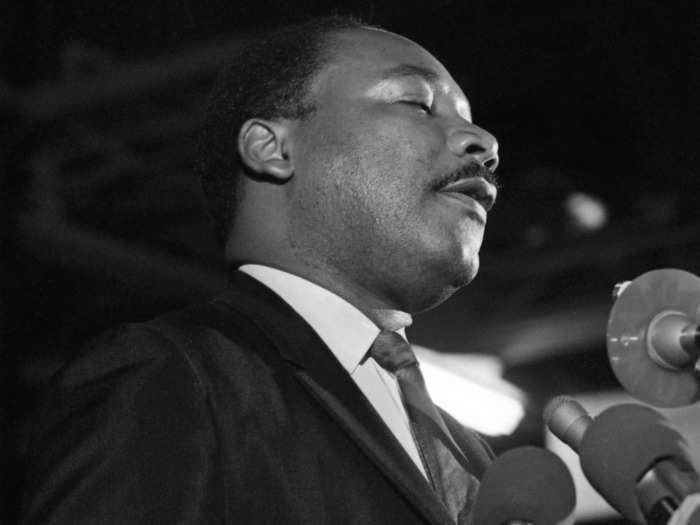
According to reports, King's unprepared remarks on the night of April 3 were uncharacteristically dark.
He reportedly told the crowd that they had a choice between nonviolence and "nonexistence" and reflected on a time "a woman walked up to him in a department store and stabbed him in the chest, narrowly missing his heart," Memphis magazine reported.
King was singing books in Harlem on that day in 1958, a decade before, and recalled to the crowd at Mason Temple, according to The Guardian reported.
James Lawson, the pastor of Memphis' Centenary United Methodist Church, later reported that while he was listening to the speech, he thought the subject of his attempted murder was an odd one for King to choose.
"I said to myself, 'I've never heard him do that in public in quite that way,'" he recalled.
Reverend Jesse Jackson attended Dr. King's public appearance at Mason Temple.
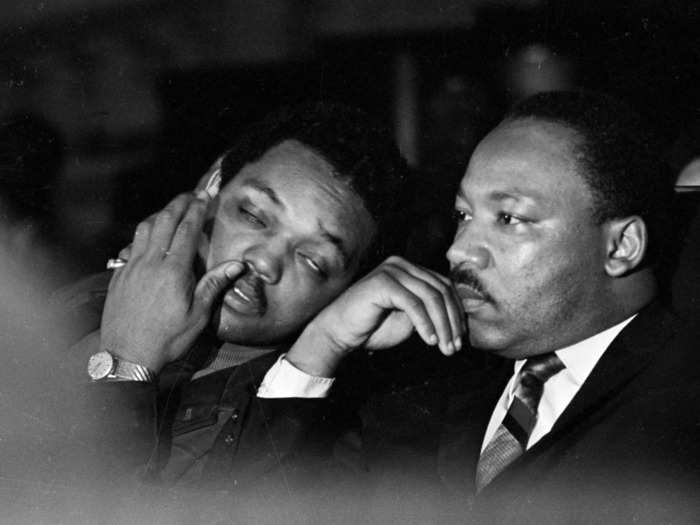
During his speech, given in the late hours of April 3, King reportedly looked back on major events in his life. He also said said "if I had sneezed" during the stabbing in Harlem he would have missed the Civil Rights movement.
He would've also missed lunch-counter protests, the Freedom Rides to end Jim Crow on interstate buses, and the chance to give his "I Have A Dream" speech, he said.
His speech ended, "Mine eyes have seen the glory of the coming of the Lord!" and his eyes were wet with tears, according to historian Michael Honey, per The Guardian.
King needed rest.
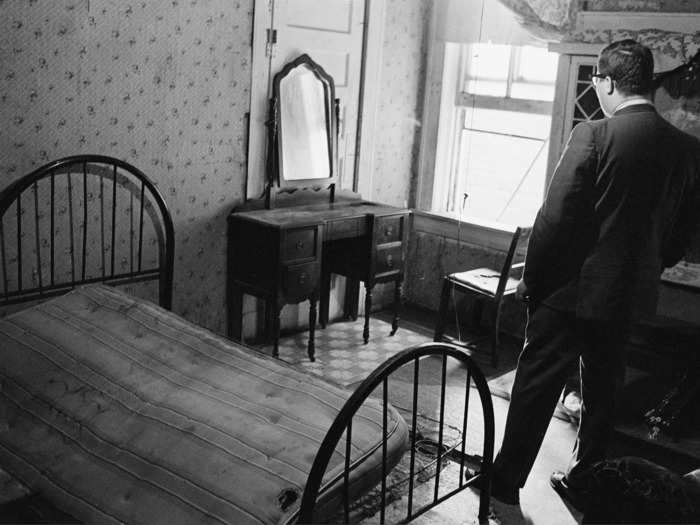
King returned to the Lorraine motel with Abernathy and his associate Bernard Lee at 4 a.m. and went to bed, according to Memphis magazine.
At 12 p.m. that day, he had a catfish lunch with Abernathy as police continued to surveil his motel room.
His assassin, James Earl Ray had arrived in Memphis the night before. At 3 p.m. on April 4, after a night at The Rebel Motel, he checked into a boarding room at 422 South Main Street, per Memphis magazine. He then requested a room switch and ended up in a room where the "window gives a partial view of the Lorraine, and by leaning out the window, Ray figures he can watch Room 306," King's room number at the Lorraine, according to Memphis Magazine.
King was headed to dinner when Ray fired a single shot that hit Dr. King.
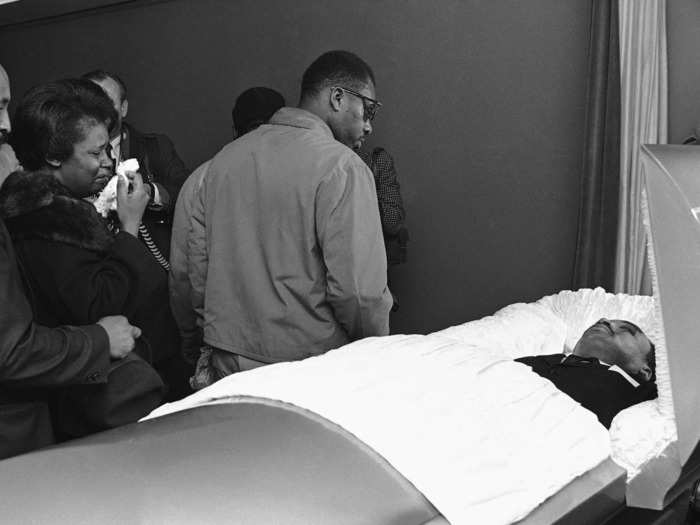
Dr. King and his associates were reportedly tense on the day of his assassination, waiting for news from Judge Bailey Brown's court. Judge Brown had wanted to present King with a temporary restraining order to prevent him from leading a march in Memphis.
King had reportedly laughed at the absurdity of it the day before but was stressed upon receiving an update about it at 4:30 p.m. on April 4.
Eventually, his mood turned and he became jovial. He was on his balcony while waiting for Abernathy to go to dinner at 6 p.m., telling a Memphis musician he's been introduced to by his associates while on his balcony to "play 'Precious Lord' like you've never played it before" for him that night at dinner.
Ray fired a single shot that hit Dr. King at 6:01 p.m.
Popular Right Now
Popular Keywords
Advertisement